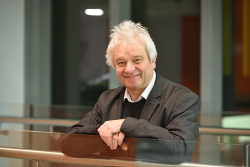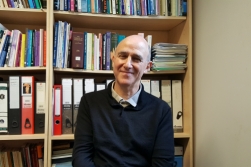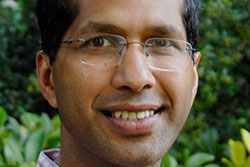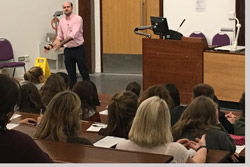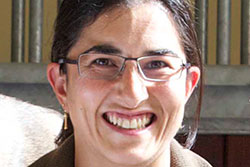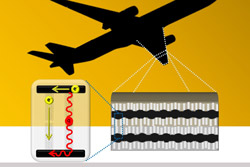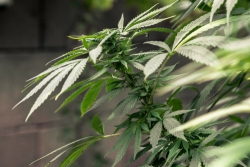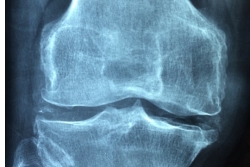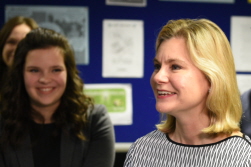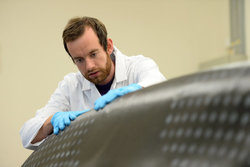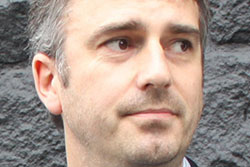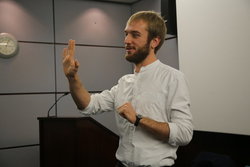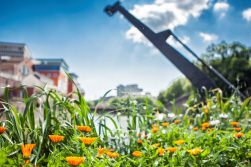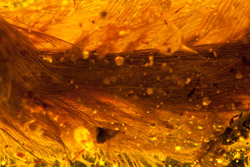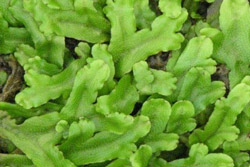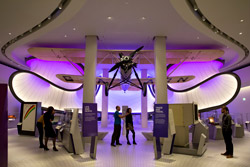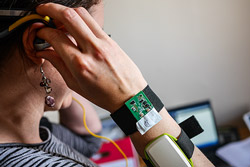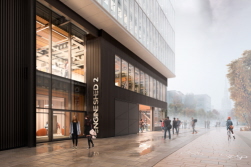Nobel Prize winner begins term as Chancellor of the University of Bristol
Sir Paul Nurse, a Nobel Prize-winning scientist and former President of the Royal Society, will today [1 January] begin his term as Chancellor of the University of Bristol.
Sir Paul Nurse, a Nobel Prize-winning scientist and former President of the Royal Society, will today [1 January] begin his term as Chancellor of the University of Bristol.
The Queen has bestowed a special honour on a University of Bristol professor whose volcanology research has helped to protect people living on the Caribbean island of Montserrat.
Professor Gene Feder has been awarded an OBE in the Queen’s New Year Honours List for services to healthcare and victims of domestic abuse.
Professor Varinder Aggarwal in the School of Chemistry has been elected to receive a Humboldt Research Award.
The University of Bristol is at the forefront of tackling the challenge of antimicrobial resistance (AMR) and engaging with the public to raise awareness of this global health issue, and what we can all do to help, is an important part of overcoming a problem that affects health, economic and social wellbeing.
Four famous faces from the University of Bristol will be pitting their quizzing prowess against Jeremy Paxman in a special series of University Challenge this Christmas.
Dr Emma Robinson, Reader in Psychopharmacology, has won the 2016 Public Understanding of Neuroscience award from the British Neuroscience Association (BNA).
A team of international scientists, led by the University of Bristol, has uncovered the earliest direct evidence of humans processing plants for food found anywhere in the world.
The Senior Training Officer at Bristol University Royal Naval Unit (URNU) has received a top award in recognition of his dedication to training URNU students over the last 20 years.
Countries as far afield as the Solomon Islands, Canada, New Zealand, Mexico, South Africa and Uganda are turning to research carried out by Bristol experts to change how they define and tackle poverty.
New technology that could enhance both the electrical and thermal conductivity of conventional composite materials has been developed thanks to a collaboration between the Universities of Surrey and Bristol together with aerospace company Bombardier.
It has been a well-established fact that, as they get older, ocean islands slowly sink.
People who have a greater risk of developing schizophrenia are more likely to try cannabis, according to new research, which also found a causal link between trying the drug and an increased risk of the condition.
University of Bristol’s Joanna Taylor was awarded Scholar of the Year 2016 at this years’ National Microelectronics Institute (NMI) Awards.
A ‘living bandage’ made from stem cells, which could revolutionise the treatment and prognosis of a common sporting knee injury, has been trialled in humans for the first time by scientists at the Universities of Liverpool and Bristol.
The University of Bristol is launching a pioneering new scheme today [15 December] to help ensure local school pupils have an equal opportunity to realise their academic potential, irrespective of their background.
Owners of dogs showing signs of osteoarthritis are being asked by the University of Bristol’s School of Veterinary Sciences to take part in the first study of its kind to find out whether an omega-3 oil derived from algae can help dogs with osteoarthritis (OA).
Services for children who are exposed to domestic violence and abuse are vital, but NIHR-funded researchers have found that there is little evidence for what support works best.
The University of Bristol’s Advanced Composites Centre for Innovation and Science (ACCIS) has announced an innovative new EPSRC-funded collaboration with the University of Nottingham.
Glaciers and ice sheets move in unique and sometimes surprising patterns, as evidenced by a new capability that uses satellite images to map the speed of flowing ice in Greenland, Antarctica and mountain ranges around the world.
A Bristol-led, international project investigating a new method of controlling the growth of organic crystals, with potential benefits for pharmaceutical development, has been awarded EU funding.
Euan Allen, a PhD student at the University of Bristol, has been shortlisted for the Institute of Physics (IOP) award recognising outstanding science communicators.
A Bristol art project about migration has won the 2016-2018 Vera List Centre Prize for Art and Politics. Presented every two years to an artist, or group of artists, whose work furthers social justice, this year the winner is Brazilian artist Maria Thereza Alves, who created Bristol’s Floating Ballast Seed Garden, in collaboration with the University of Bristol Botanic Garden, Bristol City Council and Arnolfini.
A virtual assistant and diabetes management solution has won the University of Bristol’s answer to Dragons’ Den and a share of over £40,000 of prize money.
Researchers from China, Canada, and the University of Bristol have discovered a dinosaur tail complete with its feathers trapped in a piece of amber.
Scientists from the Universities of Bristol and Cambridge have unlocked the secrets of shape in the most ancient of land plants using time-lapse imaging, growth analysis and computer modelling.
Mrs Sheena Warman, of the University of Bristol's School of Veterinary Sciences, has been awarded a National Teaching Fellowship by the Higher Education Academy.
The world's first programmable quantum photonic chip, created by scientists at the University of Bristol, will now be a part of a new permanent exhibition at the Science Museum which explores how mathematicians, their tools and ideas have helped to shape the modern world over the last 400 years.
A University of Bristol research project has been named a World Technology Award finalist by the World Technology Network (“The WTN”) – a global community comprised of the most innovative people and organisations at the forefront of science, technology and related fields.
Ground-breaking research from the University of Surrey and Augmented Optics Ltd, in collaboration with the University of Bristol, has developed potentially transformational technology which could revolutionise the capabilities of appliances that have previously relied on battery power to work.
Business incubation centre Engine Shed has marked its third anniversary by launching the public consultation for its second hub – to be located next to the University of Bristol’s new £300 million campus.
Repeated dieting may lead to weight gain because the brain interprets the diets as short famines and urges the person to store more fat for future shortages, new research by the universities of Exeter and Bristol suggests.
High-growth tech entrepreneurs pitched for a share of more than £25 million backing when they took part in SETsquared’s annual Accelerating Growth Investment Showcase in London last week.
The winners of this year’s Vice-Chancellor’s Impact Awards, which showcase the diverse and important contributions that Bristol research makes to society, were announced at the Strategy Launch on 29 November.
